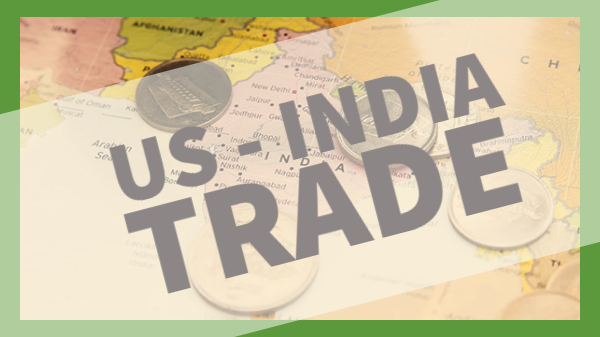It is natural for an industry to view trade issues solely through the lens of its own interests. But it is often misleading.
Let us look at the punitive tariffs that India levied on American apples, which were only lifted this summer.

India imposed the tariffs in 2018 in retaliation for tariffs that the U.S. government had imposed on Indian steel and aluminum imports.
What did all of this have to do with apples? Nothing directly.
USApple BB #:145473 president Jim Bair said, “If there’s pain and suffering in some other industry—to us it doesn’t make any sense to take that pain and suffering and dump it on the heads of U.S. apple growers who weren’t involved in the dispute that caused the tariffs.”
No indeed, but that’s how it works.
It would have been pointless for India to retaliate by imposing tariffs on U.S. steel and aluminum because it was a net exporter of those materials to this country.
Similarly, the Indian decision to lift its punitive tariffs on apples in June should be viewed in a wider framework: the nation’s rapprochement with the United States over worries about an increasingly belligerent China. India and China had a brief war over border issues in 1962, and similar disputes have continued to surface since then.
None of this has a direct causal link to India’s lifting of its apple tariffs but must be understood as part of the background.
In recent decades, the United States pursued closer trade relationships with China as a way of luring it into the international liberal world order, of which the U.S. is a mainstay. It was hoped that increased economic integration of China into the global economy would lead to continued liberalization of freedom of speech and other basic rights.
This gift hurt: according to Robert Scott, an economist quoted recently in The New Yorker, increased Chinese access to the American market cost the United States nearly 4 million jobs, mostly in manufacturing.
With the ascent of Xi Jinping to power in China in 2012, hopes for liberalization were increasingly stifled, as Xi has behaved in an increasingly authoritarian fashion (some have even contended that he has more power now that Mao Zedong had in his day). Result: the two latest U.S. presidential administrations have tightened trade restrictions on China, although these have probably had no influence on Chinese internal politics.
Xi’s aggressive stance has alarmed practically all of its neighbors, including India, which has led the latter to warm up to the United States—although, of course, the two nations’ interests do not and cannot coincide exactly. As The Economist recently (and rather obviously) stated, “America and its allies should be realistic about where India’s sympathy lies—with its interests, not theirs.”
The U.S. apple industry, like other produce sectors, hates the idea that it can be used as a pawn in global political and economic relations, but that is the way the world works. Indeed, all industries need to be aware of and (to the extent possible) be prepared for such eventualities.
Of course, some people are infuriated by India’s lifting of the tariff: Indian apple growers.



